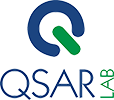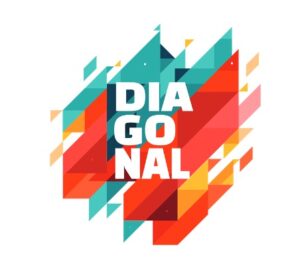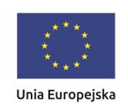Horizon 2020 & Horizon Europe Program
QSAR Lab implements international research and development projects financed by the European Union’s HORIZON 2020 framework program.
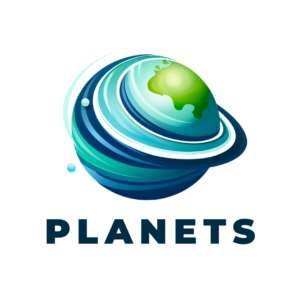
ID: 101177608
Realization date: 01.11.2024 r. - 31.10.2028 r.
Project coordinator: COMMISSARIAT A L ENERGIE ATOMIQUE ET AUX ENERGIES ALTERNATIVE (France)
Coordinator in QSAR Lab: dr inż. Anita Sosnowska
Aim of PLANETS:
The Project will demonstrate the SSbD approach's applicability for the technical development of alternatives to the 3 most important classes of compounds in the chemical industry - plasticizers, flame retardants and surfactants - at TRL6 and their integration into widely available consumer goods at TRL7. The new molecules and products will be significantly safer for workers and consumers, will have a significantly lower environmental impact, while ensuring economic viability and social awareness in the 3 value chains. The guiding principle will be to eliminate hazardous substances by choosing safer alternatives and/or redesigning production processes to minimize the formation of hazardous substances. Material efficiency (i.e. use of renewable/circular raw materials, reaction efficiency, waste minimization) and energy efficiency (i.e. use of catalysts, fewer production steps and less energy-intensive production) will also be among the key design principles to be investigated in PLANETS.

ID: 101178074
Realization date 1.11.2024 – 31.10.2028
Project coordinator: Instituto Technologico Del Embalaje, Transporte Y Logistica, ITENE (Spain)
Coordinator in QSAR Lab: dr inż. Karolina Jagiełło
Aim of Alchemisst:
Project aims to demonstrate the applicability of the Safe by Design (SSbD) framework by developing and implementing safer and more sustainable alternatives to surfactants, plasticizers, and flame retardants. These substances, commonly found in everyday products, pose significant risks to human health and the environment and are therefore classified as substances of very high concern (SVHC).
The project’s overarching goal will be achieved through several targeted objectives, including the development of alternative substances, gathering robust and reliable evidence to establish Proof of Concept for the SSbD framework, and creating a certification methodology to facilitate the adoption of SSbD principles within the industrial sector.
A key element of the AlchemiSSts project is the use of integrated approaches and tools that support safety, sustainability, and social assessment, all based on interoperable FAIR data and models.
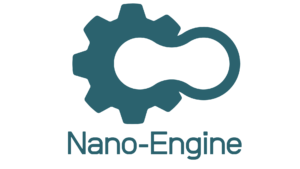 ID: 101070114
ID: 101070114
Realization date: 1.04.2023 r. - 31.03. 2026 r.
Project coordinator: UNIVERSITEIT UTRECHT
Coordinator in QSAR Lab: dr Ewelina Wyrzykowska
Aim of NANO-ENGINE: developing a first-in-class, DNA-based, non-viral, targeted in vivo cell programming technology that can treat a wide range of diseases, including cancer and genetic disorders.
The consortium aims to characterize and test targeted nanoparticles, explore small-scale synthesis, and conduct proof-of-concept studies in this project. This will solve the problems associated with traditional cell therapies, reducing cost, complexity, and associated clinical risks, significantly increasing the availability of cell therapies to patients worldwide.
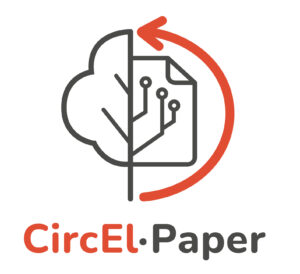
ID: 101070114
Realization date: 1.09.2022 r. - 28.02.2026 r.
Project coordinator: FRAUNHOFER GESELLSCHAFT ZUR FORDERUNG DER ANGEWANDTEN FORSCHUNG EV
Coordinator in QSAR Lab: dr Anita Sosnowska
Aim of CircEl-Paper: increasing the amount of e-waste recycling by introducing it into the paper recycling process, which is more accepted by consumers. CircEl-Paper focuses on the widely used Printed Circuit Board PCB technology and aims to replace the FR4 composite core material with paper technology.
To move PCB technology into a circular economy, each step of the process is carefully analyzed and alternative approaches are developed to increase the share of materials that are recyclable, bio-based, derived from recycled raw materials or are at least environmentally sound.
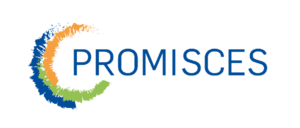
ID: 101036449
Realization date: : 1.11.2021r. - 30.04.2025r.
Project coordinator: BUREAU DE RECHERCHES GEOLOGIQUES ET MINIERES
Coordinator in QSAR Lab: Anita Sosnowska, PhD. Eng.
Aim of PROMISCES: Understanding the origin and fate of persistent pollutants that spread easily in the environment. The project seeks to enable a safe circular economy for the soil-sediment-water cycle by developing and testing, under "real-world conditions", key technologies and innovations to monitor, prevent and remediate industrial, persistent and mobile, potentially toxic (iPM(T) ) impurities.
PROMISCES creates zero emission cycle concepts for water and complex solid matrices in the private and public sectors, focusing specifically on PFAS compounds.

ID: 101058784
Realization date: 1.09.2022 - 31.08.2025
Project coordinator: VLAAMSE INSTELLING VOOR TECHNOLOGISCHONDERZOEK N.V.
Coordinator in QSAR LAB: Alicja Mikołajczyk, PhD
Aim of NOUVEAU: Development of innovative and environmentally friendly energy conversion technologies using new materials based on cells with solidified oxide electrolytes and connectors with reduced content of rare earth metals (REE), platinum group transition metals (PGM), and chromium (Cr). The project aims to create the possibility of producing heat engines (SOEC) with increased efficiency, with reduced production costs and the amount of harmful substances, by the idea of sustainable development (sustainable-by-design).

ID: 101008099
Realization date: 1.06.2020 r. - 31.05.2025 r.
Project coordinator: NOVAMECHANICS LIMITED
Coordinator in QSAR Lab: Karolina Jagiełło, PhD. Eng.
Aim of CompSafeNano : Development of integrated and universal nanoinformatics models that will be widely used in all types of nanoforms (materials, composites) used and manufactured by manufacturing companies. Integrated nanoinformatics models will also be used by regulatory authorities to assess risk and make appropriate decisions. The project will also contribute to improving the competencies of scientists in the approach to nanoinformatics.
ID: 953152
Realization date: 1.05.2021 r. - 31.10.2024 r.
Project coordinator: UNIVERSIDAD DE BURGOS
Coordinator in QSAR Lab: Alicja Mikołajczyk, PhD
Aim of DIAGONAL:
Development and implementation of safe by design tools for new-generation multicomponent nanoparticles (Multicomponent, MCNMs, and High Aspect Ratio, HARNs).
The DIAGONAL project will develop new structure-property-function (SPF) models and structure-property-hazard (SPH) models that will enable understanding of the impact of MCNMs and HARNs on the environment and assessing the risk they pose to human health.
 ID: 760813
ID: 760813
Realization date: 1.01.2018r. - 30.06.2021r.
Project coordinator : SWANSEA UNIVERSITY
Coordinator in QSAR Lab: Karolina Jagiełło, PhD. Eng.
Aim of PATROLS: Developing a set of reproducible and reliable tests that will allow predicting the long-term effects of the threats posed by nanomaterials to human health and the environment. New generation tests, which constitute an alternative to tests using laboratory animals, will be based on in vitro tests performed on 3D models of selected tissues and in silico methods.
 ID: 81443
ID: 81443
Realization date:1.01.2019 r. - 28.02.2023 r.
Prject coordinator: NORSK INSTITUTT FOR LUFTFORSKNING STIFTELSE
Coordinator in QSAR Lab: Anita Sosnowska, PhD. Eng.
Aim of RiskGONE:
Supporting the process of standardization and validation of nanomaterials through the assessment, optimization, and pre-validation of Standard Operating Procedures.
RiskGONE's mandate is to create a nanomaterials safety governance body in the form of a self-sustaining Risk Management Board, representing EU Member States and public authorities, scientific experts, civil society, and industry, and to create a guide detailing nanomaterials, their classification and specific decision-making activities, to support risk management.

ID: 814572
Realization date: 1.01.2019r. - 28.02.2023r.
Project coordinator: NOVAMECHANICS LIMITED
Coordinator in QSAR Lab: Ewelina Wyrzykowska, PhD
Aim of NanoSolveIT: Introduction of an innovative integrated approach to testing and assessment (IATA) for the safety of nanomaterials and their impact on the environment. The result of NanoSolveIT will be, among other things, a set of innovative methods for predicting (eco)toxicity using artificial intelligence (AI) and their integration with currently developing multi-scale modeling and management structures.
National grants
We also implement national and regional projects and grants.
 Project no. POIR.01.01.01-00-0372/19 "Nano-QSAR Toolbox - a platform for computer prediction of physicochemical properties, toxicity and ecotoxicity of titanium dioxide nanoparticles"
Project no. POIR.01.01.01-00-0372/19 "Nano-QSAR Toolbox - a platform for computer prediction of physicochemical properties, toxicity and ecotoxicity of titanium dioxide nanoparticles"
Realization date: 01.12.2019 – 30.11.2022 r.
Project value: 2 157 705,00 zł
EU funding: 1 695 287,75 zł
Funding: "Fast Track" competition implemented under Sub-measure 1.1.1. "Industrial research and development work carried out by enterprises" of the Smart Growth Operational Program 2014-2020 by the National Center for Research and Development.
Aim: development and implementation of the Nano-QSAR Toolbox platform, enabling computer prediction of the physico-chemical properties, toxicity, and ecotoxicity of titanium dioxide nanoparticles in the context of risk assessment required when registering new chemical substances before their introduction to the market. The Nano-QSAR computer modeling method will enable the prediction of selected physicochemical, toxicological and ecotoxicological properties and the generation of reports presenting the results consistent with the regulatory area in which a given nanoparticle will be used.

 Project no. POIR.01.01.01-00-0779/20 "Development and implementation of the Nano-QSAR Toolbox platform enabling computer prediction of physicochemical properties, toxicity and ecotoxicity of ZnO and SiO2 nanoparticles"
Project no. POIR.01.01.01-00-0779/20 "Development and implementation of the Nano-QSAR Toolbox platform enabling computer prediction of physicochemical properties, toxicity and ecotoxicity of ZnO and SiO2 nanoparticles"
Realization date: 01.11.2020 – 30.06.2023 r.
Project value: 2 713 734,28 zł
EU funding: 2 127 048,52 zł
Funding: "Fast Track" competition implemented under Sub-measure 1.1.1. "Industrial research and development work carried out by enterprises" of the Smart Growth Operational Program 2014-2020 by the National Center for Research and Development.
Aim: development and implementation of the Nano-QSAR Toolbox platform, enabling computer prediction of the physico-chemical properties, toxicity, and ecotoxicity of zinc oxide and silicon dioxide nanoparticles in the context of risk assessment required when registering new chemical substances before their introduction to the market. The Nano-QSAR computer modeling method will enable the prediction of selected physicochemical, toxicological and ecotoxicological properties and the generation of reports presenting the results consistent with the regulatory area in which a given nanoparticle will be used.

Project no. POIR.02.03.06-22-0014/22-00 regarding the preparation of an application for the project "High resolution multimodal chemical imaging platform for tracking nanoplastics and engineered nanomaterial in the life cycle analysis framework (npGRASP) under the Horizon Europe Program.
Realization date: 01.03.2022 r.– 31.12.2022 r.
Project value: 23 250,00 zł
Amount of funding: 23 250,00 zł
Funding: under sub-measure 2.3.6. Eurogrants from the Smart Growth Operational Program 2014-2020, co-financed by the European Regional Development Fund.
Aim: Preparation of an Application for co-financing of the European "npGRASP", which is a consortium project whose aim is to identify the potential threat to human health and the natural environment resulting from the presence of nanoplastics and other products based on nanotechnology in the environment and to propose and determine the usefulness of advanced tools for assessing the risk of nanomaterials ( nanoplastics)
Project effects: Activities under "npGRASP" will include the development of the above concept through scientific exchange and mentoring, training and webinar programs addressed to scientists employed among the consortium members. QSAR Lab is engaged in R&D services, primarily in the area of nanomaterials and chemical safety. Participation in "npGRASP" will allow the Company's scientific team to develop competences and acquire new contacts, resulting in an increase in the potential to implement R&D projects and competitiveness on the international market.

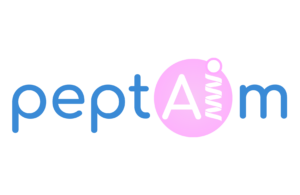
Project no. POIR.01.01.01-00-1964/20 "PeptAlm - an artificial intelligence platform for studying peptide-protein interactions from virtually generated peptide libraries"
Realization date: 01.09.2021 – 31.12.2023 r.
Project value: 5 354 669,75 zł,
w tym dla QSAR Lab 3 034 834,75 zł
EU funding: 4 002 626,57 zł,
including 2 213 327,07 zł for QSAR Lab
Aim: development and implementation of a bioinformatics PeptAIm platform for creating molecular diagnostic tests, allowing the selection of ligands (peptides) with high affinity towards target proteins. The main area of use of the software will be broadly understood molecular diagnostics and other scientific areas examining protein-protein interactions, including ligand-receptor interactions. The program will provide basic information about the sequence, spatial structure and affinity strength of candidate peptides towards a given target receptor.

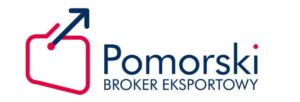
Providing support in the form of a foreign broker service as part of the project: "Pomeranian Export Broker. A comprehensive export support system in the Pomeranian Voivodeship.
QSAR Lab received support under the above project for two grant agreements:
- UDG-PBE.04.2020/063
The subject of this agreement is to provide co-financing for the implementation of the project "Expansion of services of QSAR Lab sp. z o. o. to foreign markets" in the form of financial support for the participation of SMEs in the fair.
The aim of the project is to develop the company and expand its sales markets, especially on European markets. The result will be the expansion of the company's customer base on foreign markets and increased recognition.
Realization date: 18.12.2020 r. - 30.09.2022 r.
Total implementation cost: 78 962,92 PLN
EU funding: 39 377,96 zł
Own contribution: 39 377,96 zł
2. DRP/51/2020
The subject of this agreement is to provide support in the form of a foreign broker service.
As part of the support, the company will receive research and analysis of the Swedish market, including examining opportunities and assistance in initiating business contacts, as well as support in establishing business relationships by organizing meetings with potential contractors on the Swedish market.
Estimated value of the foreign broker's service: 70 000 zł.
(Regional Operational Program of the Pomeranian Voivodeship for 2014-2020)
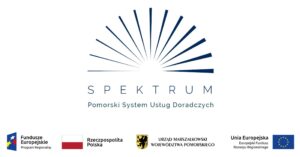
Grant Project "SPEKTRUM. Pomeranian Advisory Services System"
Realization date: 1.01.2021 r. - 31.05.2021 r.
Total implementation cost: 34 160,00 zł, including:
EU funding: 32 452,00 zł
Own contribution: 1 708,00 zł
The aim of the SPEKTRUM Project is to enable enterprises from the SME sector to purchase necessary development services. Grants are awarded to cover part of the costs of purchasing specialized consulting services.


Grant Project "SPEKTRUM. Pomeranian Advisory Services System No. WNG-SPE.03.00/006
Realization date: 1.07.2022 r. - 31.12.2022 r.
Total implementation cost: 47 970,00 zł
The aim of the SPEKTRUM Project is to enable enterprises from the SME sector to purchase necessary development services. Grants are awarded to cover part of the costs of purchasing specialized consulting services.

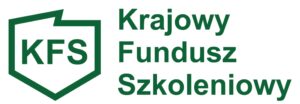
Agreement 233/KFS/2022 on financing the costs of continuing education of employees and the employer from the National Training Fund.
Total cost: 6 000,00 zł.
The aim of the KFS Project is to help finance training services for a team of employees of companies participating in the program.
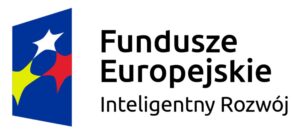
The contract was implemented as part of the project titled "Intellectual property in your company" POIR.02.06.00-00-0001/19-00 financed under the Smart Growth Operational Program, action 2.6 "Non-competitive project of the Patent Office of the Republic of Poland", under the European Regional Development Fund.
Total amount of eligible costs: 1463,41 zł zł.
Total amount of the Grant: 1317,07 zł zł.
The aim of the project of the Patent Office of the Republic of Poland is to develop practical skills of entrepreneurs in the use of intellectual property protection, including industrial property, and to make them aware of the possibilities of deriving benefits from this protection.
The expected measurable effects of the project include new:
- reporting of industrial property items;
- granted exclusive rights to industrial property items;
- concluded license agreements regarding intellectual property rights;
- concluded agreements regarding the transfer of intellectual property rights;
- internal regulations implemented in the company regarding the protection and management of intellectual property;
- contracts concluded with employees of the enterprise, containing clauses regarding intellectual property;
- other instruments, such as the valuation of intangible assets.
